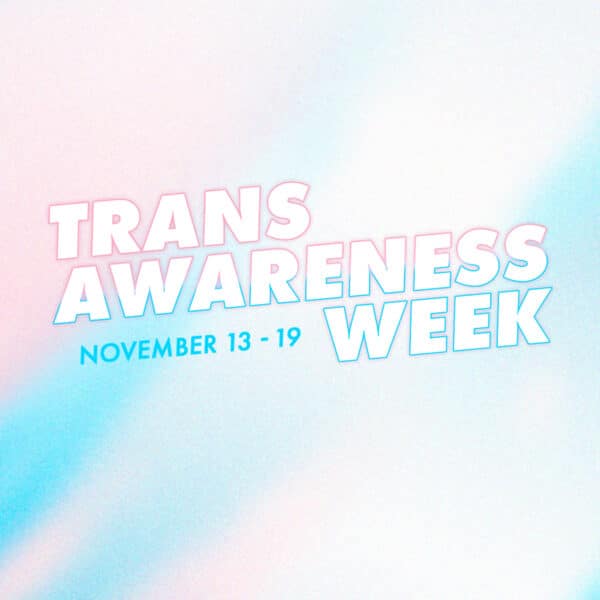Trans awareness week runs from November 13th and culminates with the Trans day of Remembrance on Friday 20th November. Trans is a general term for people whose gender is different from that assigned to them at birth.
Trans day of Remembrance is a day set aside to remember those that have been lost as a result of transphobia and violence against the trans community. In a Stonewall survey, 41% of trans men and trans women said they had experienced a hate crime or incident because of their gender identity.
There is an alarming number of trans men and trans women who have experienced homelessness in their lifetimes often as a result of unsupportive households. This tension has increased during 2020 due to the impacts of COVID-19. There are people in the trans community with either a small or no support network who are being forced to isolate in a household where they do not feel comfortable, welcome or safe.
Globally, trans rights are fragile and the rates of suicide and self-harm amongst the community are at a worrying high. In a Forbes article shared in September 2020, it stated 37 countries have laws in place that criminalise transgender people. However, consensual same sex acts, being LGBTQ, are still illegal in 70 countries around the world and some are still punishable by death.
The facts and figures are harrowing but there is something that can be done to raise awareness and improve the lives of those who are transgender or are gender non-conforming, and that is to be an ally.
What is a trans ally?
An ally is a person who supports equal civil rights, gender equality and LGBTQ+ social movements. They challenge transphobia and can be a voice for those who feel unheard.
How can I be a better ally?
Here are the top 3 ways you can help:
- Listen
The lives of trans people are equal and important and they deserve to be heard. Listen to the stories they share. It is our job as an ally to teach ourselves and listen to the challenges and injustices faced by the trans community
- Use thoughtful language
Words can be damaging, and many phrases can be hurtful to trans people. Understand how demeaning phrases such as “pre/post-op” can be. Asking an individual if they were born a ‘boy or a girl’ or what their birth name was can be hurtful even when there is no malicious intent. If required, using phrases such as ‘what gender were you assigned at birth?’ is better as it recognises the difficult relationship between body and gender
- Ask their Pronouns
Gender identity can be a complex thought for many people and it is a personal matter. Whilst it may feel uncomfortable to ask what a person’s preferred gender pronoun is, it is far better than assuming. Many organisations and individuals add their pronouns to their email signatures or to personal documents to educate and advise others. This can be a great way to encourage your organisation to be more gender-inclusive
For further information, there is a great video: https://www.youtube.com/watch?v=xS5FMErj0SE
Extra Resources
- Glaad Tips for Allies of Transgender People: https://www.glaad.org/transgender/allies
- MindOut LGBTQ mental health service: https://mindout.org.uk/
- Mermaids UK, helping gender-diverse kids: https://mermaidsuk.org.uk/
- Sparkle National Transgender Charity: https://www.sparkle.org.uk/




